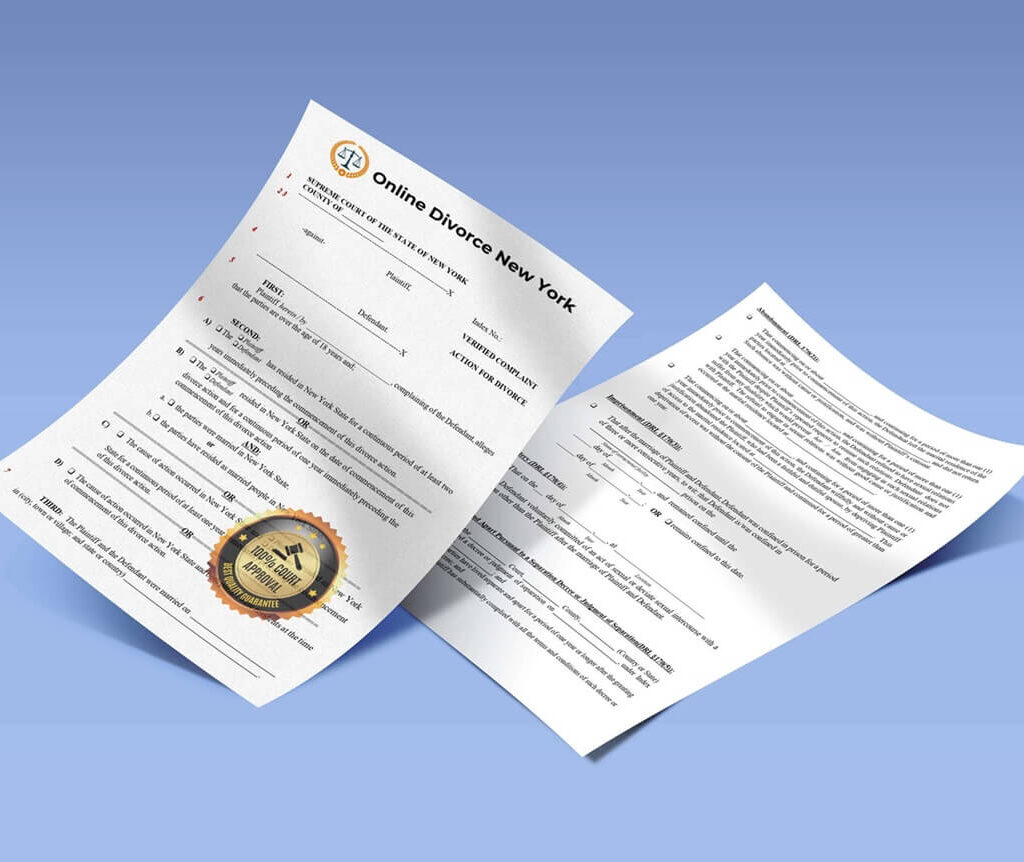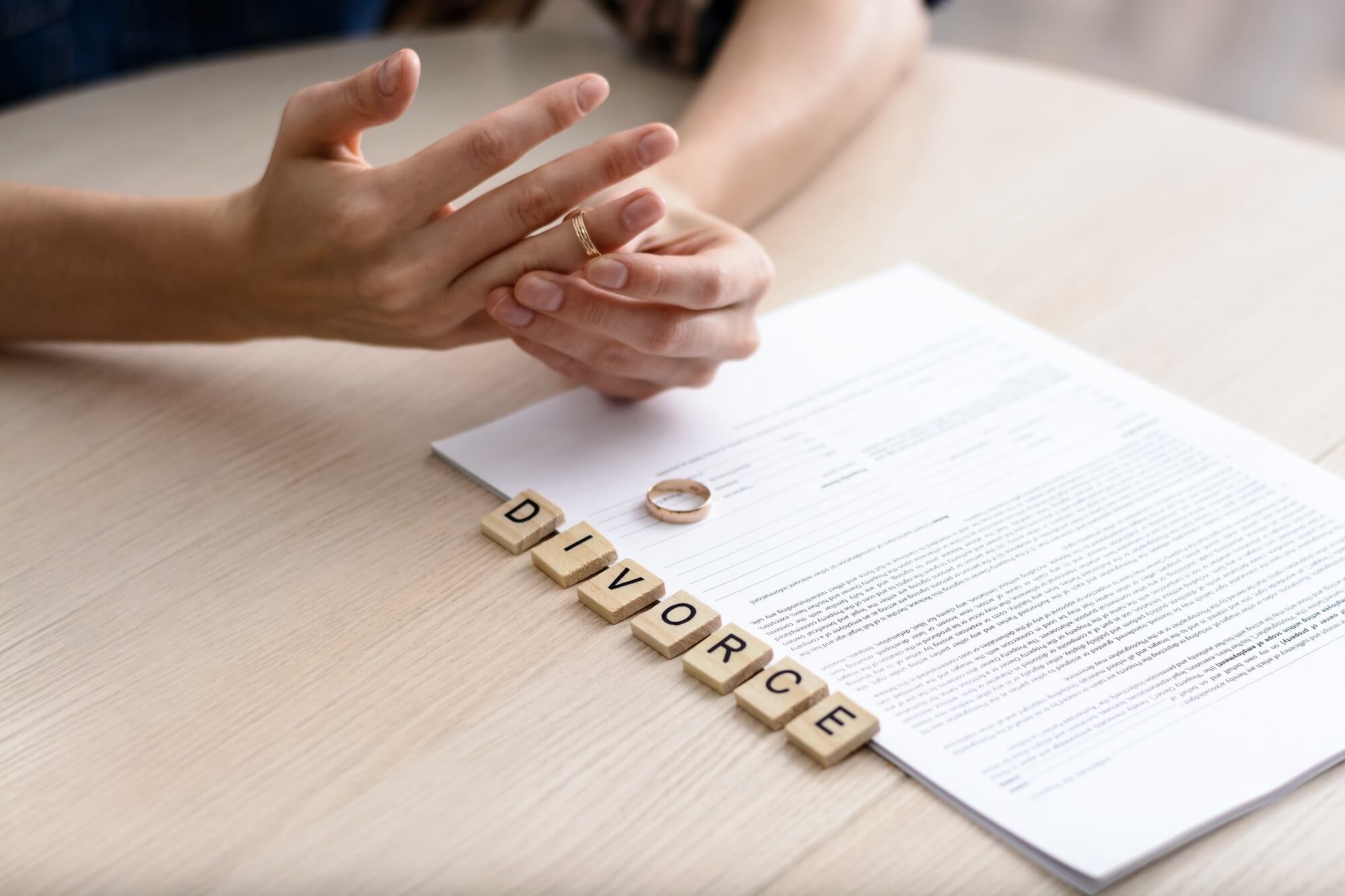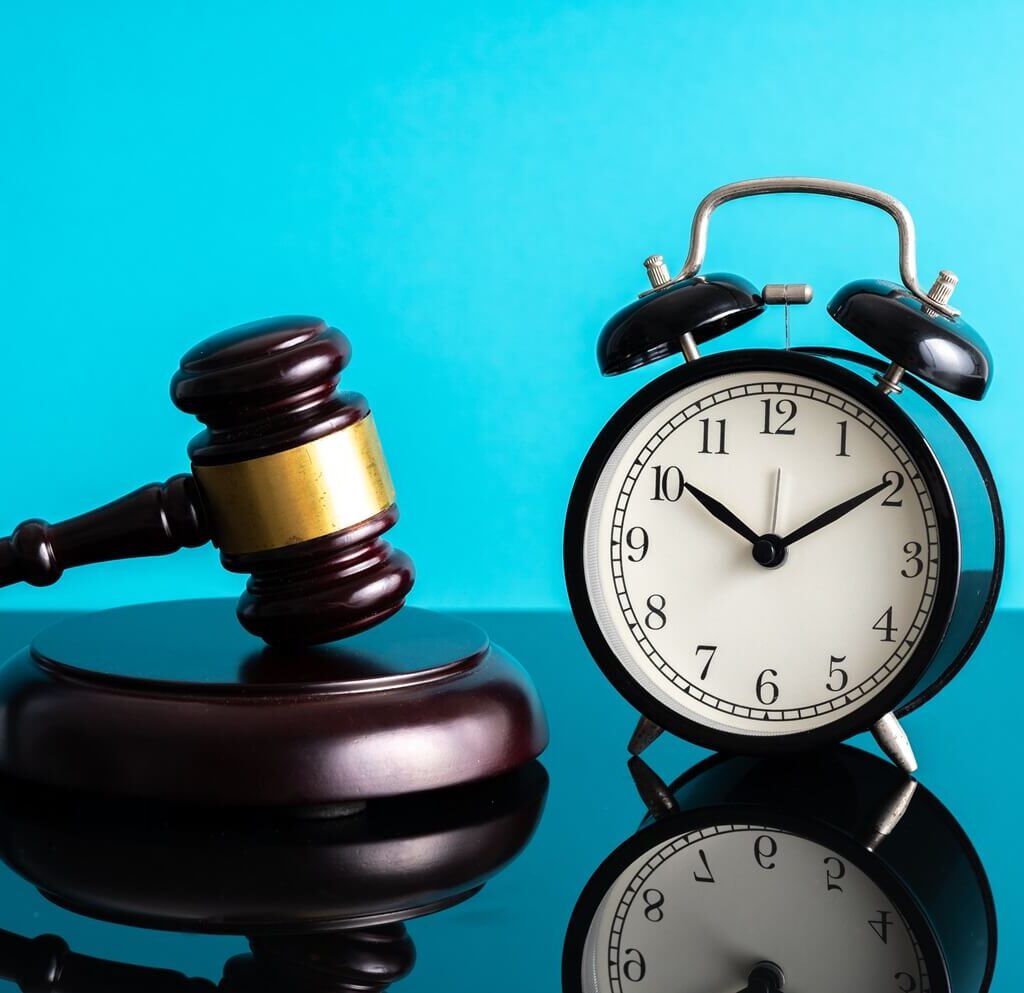If you have been served with divorce papers in New York, you must respond within 20 or 30 days, depending on how you were served, or a default judgment could be entered against you. If you do not file an answer, the divorce can proceed without you.
Receiving papers informing you that your spouse has started a divorce case can be frustrating and even infuriating. However, it is important to accept that this has already happened and that the further course of the process significantly depends on you. Therefore, to avoid the situation when the divorce proceeds on the conditions of the second party without taking into account your opinion, you should be aware of what actions to take.
Let’s look at the process of marriage dissolution from the very beginning to understand the steps involved and service in particular.
The Beginning of a Divorce Case: Filing and Serving the Petition
To start the divorce proceedings in New York, either spouse must be eligible for filing in the state. As a rule, they should meet the residency requirements and have one of the appropriate grounds for divorce.
To initiate the divorce case, one spouse should file the paperwork, which includes Summons with Notice or Summons and Complaint and some other mandatory forms, with the County Clerk’s Office. Alternatively, it can be done online through the NYSCEF (New York State Courts Electronic Filing) system. After filing all the required papers, one spouse gets a unique index number that is assigned to the new case and becomes a plaintiff, while the other party is a defendant.

Please note that the plaintiff will need to pay the mandatory filing fee. In an uncontested divorce, the amount of expenses will be about $335. However, if the party filing for divorce does not have enough financial means to pay for it, they can request a fee waiver from the court.
After filing with the court, it is time to notify the other party about the start of the marriage dissolution process. For this purpose, it is better to collect notarized copies of all the necessary papers in advance.
Typically, this set of paperwork includes the following:
- Summons with Notice or Summons and Complaint
- Notice of Automatic Orders
- Notice Concerning Continuation of Health Care Coverage
- Notice of Guideline Maintenance
- Affidavit of Defendant, etc.
If you have children or are in a religious marriage, some additional forms, such as Sworn Statement of Removal of Barriers to Remarriage or photocopy of the Child Support Standards Chart, among others, should be added to the above list.
Now, let’s look at the options for serving divorce papers in NY.
You Know Your Spouse’s Location
If you know where the defendant currently resides, you should make sure they are served within 120 days from filing.
One of the options of how you can hand over paperwork to your spouse is to do it in person. However, you can deliver the papers on your own only if you are absolutely certain that the other party will agree to the uncontested divorce by signing an Affidavit of Defendant.
An alternative option is to involve a third party if you are unsure whether the dissolution will be uncontested. This person can be someone unrelated to the divorce case who is at least 18 years old, or you may hire a special process server.
If you choose a professional process server, typically, you don’t have to worry about the correctness of the process. If you pay a reliable company, you will get professional assistance with serving the papers.
On the other hand, if you have made the decision to involve someone you know for this work, you need to ensure that everything goes according to the state legislation. If your partner is to be served somewhere in New York, the third party must be an adult resident of the state and should be informed of how to deliver the documents. In case the spouse will be served outside of New York State, the server must follow the requirements of the local authorities.
In addition, it is mandatory to complete an Affidavit of Service and file it with the court as soon as the papers are served, no matter which option you choose.
You Cannot Locate Your Spouse
It sometimes happens that people do not live together for a long time and do not take an interest in each other’s life but are still married formally. In such circumstances, if they decide to divorce, there may be some problems with serving the papers to the defendant if their place of residence is unknown.
Certainly, you can try to find out the spouse’s location through friends or acquaintances. However, if all these actions have no result, it is better to contact the court and clarify what other ways of service can be used.
You may be allowed to inform the other party about the divorce by publication in NYC. If you publish a notice in the newspaper, the court may consider it a sufficient effort to reach the defendant who cannot be served in person.
Also, you may check with the local court if there are any other alternatives to service, for example, to serve the divorce papers through Facebook. Potentially, it may work if you did everything possible before to locate your spouse but with no success. If your spouse is an active social media user or regularly updates their profile, it may be a way to contact them. Still, it is better to consult with an attorney on the issue.
What Happens When You Get Served with Divorce Papers?
If you receive the divorce papers from your spouse, you are the defendant in the case. You have 20 or 30 days to provide your response to the divorce complaint, depending on whether you were served in or outside the state, respectively.

The very first thing you should do is to thoroughly review the content of the paperwork. Look at whether your information is correct, what grounds for divorce your spouse has stated, by what date you are expected to respond, and so on. If you do not understand how to proceed and what actions to take, you can consider hiring a lawyer or at least having a consultation with one.
Depending on whether you agree with the divorce terms, you may respond to the divorce Complaint or sign the Affidavit of Defendant.
Affidavit of Defendant
Among the forms you obtain from the other party is the Affidavit of Defendant. If you think the divorce terms specified in a Complaint are reasonable, or if you have settled everything between you by compromise and signed a Settlement Agreement, you can sign the Affidavit and return it to the plaintiff. It will mean that your divorce is uncontested. Essentially, it will likely be a relatively quick process that will not require significant financial expenditures because you won’t have to appear at multiple court hearings and necessarily involve an attorney to represent you during a trial.
Answer to Divorce Petition
Also, you can choose to respond to the divorce papers by completing and filing an Answer, referred to as Notice of Appearance.
By doing so, you are showing that you do not agree to a divorce under the second party’s terms and want to resolve everything through a trial. In this case, be ready to have a longer divorce process with potentially multiple court hearings. You should take into account that handling a contested case is more expensive and stressful.
Keep in mind that after filing the Answer, you will have to serve it on the plaintiff and provide the court with the Affidavit of Service.
Responding to the Divorce Petition
So, you’re served with the divorce papers, now what? It is best not to delay the decision on your next steps and notify the other party of your opinion on the divorce terms by the deadline. Some spouses choose to ignore the documents altogether and do nothing. However, this way, they lose a right to have an impact on the divorce process and court decisions.

You are mistaken if you think you may not respond to the divorce complaint, and the case will not proceed. On the contrary, it can potentially end even faster without your participation and objecting to the terms. It is likely that the judge will make a decision accepting all the plaintiff’s requests if they do not contradict the state laws and seem just and reasonable. You will be considered a defaulter due to the fact that no response was received from you within the provided time limit.
If you want the process of getting a divorce in NY to go as smoothly as possible, the best thing you can do is adhere to the state regulations and guidelines. Also, if you realize that you can’t manage to resolve disputes with your spouse and the divorce is going to be contested, do not delay in seeking legal assistance and hire an experienced attorney to help you throughout the case.

Start by creating a free account on our website to see if you qualify for an online divorce in New York. Prepare all the paperwork needed for filing an uncontested divorce online without lawyers.

Rafael Hebert is an experienced writer specializing in such topics as infidelity in marriage and divorce. His works can be seen on popular blogs like Marriage.com and Divorce Magazine. Having background in relationship counseling, Rafael is dedicated to helping individuals with emotional issues surrounding infidelity and educating them on their divorce options. In his free time, Rafael enjoys watching documentaries and visiting film festivals in different states.








